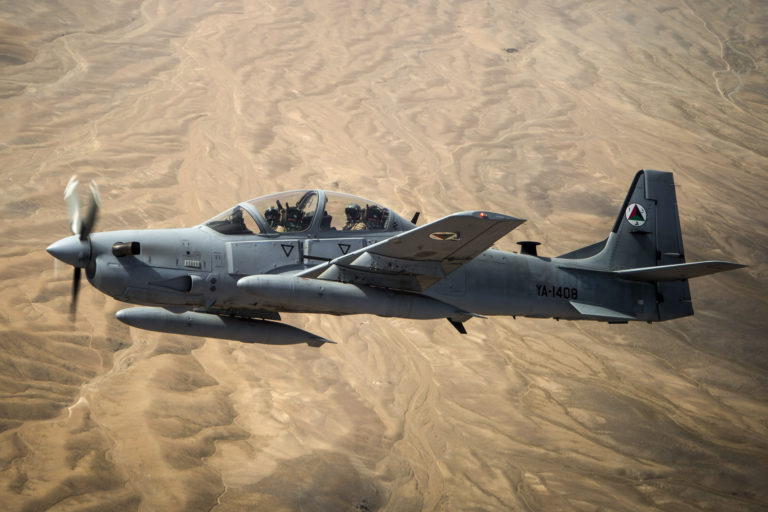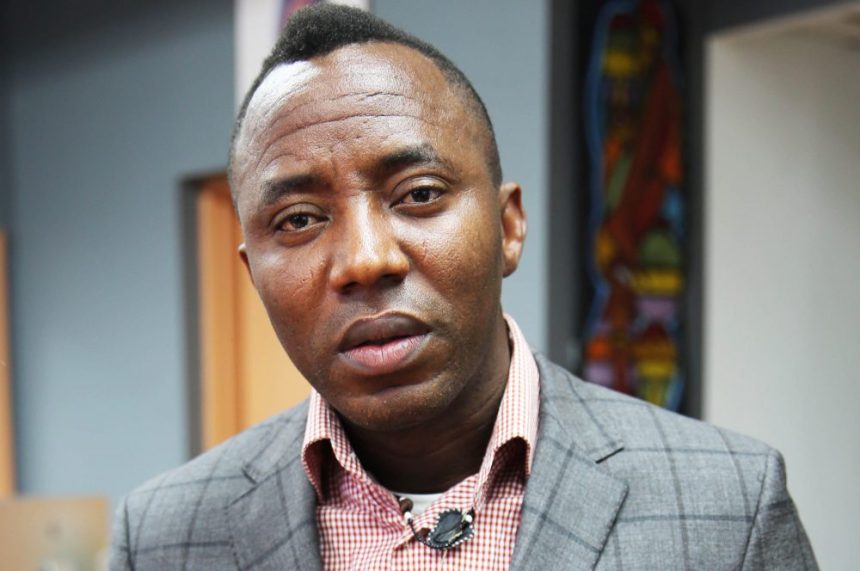Matilda Omonaiye/
Detained activist, Omoyele Sowore may breathe the air of freedom any time from now, following panic in government circles as United States (U.S.) government threatens to sanction Nigeria over human rights violations, NewsmakersNG exclusively gathered.
Sources in international security circles told NewsmakersNG that the Federal Government of Nigeria is ready to free Sowore this week after the American government threatened to terminate a defence contract to sell 12 fighter jets known as Super Tucano to Nigeria.
Pentagon had in November 2018 awarded a $329 million contract to Sierra Nevada for 12 A-29 Super Tucano light attack aircraft for the Nigerian Air Force, more than two years after the deal was first mooted by the administration of President Barack Obama in May 2016, but was then stalled by Obama over concerns about human rights violations after the Nigerian Air Force ‘mistakenly’ bombed a refugee camp in January 2017, killing more than 100 refugees and aid workers.
President Donald Trump’s administration decided to re-activate the deal in April 2017.
Now, the American government is threatening to refund the $469.4 million that Nigeria has already paid for the aircraft to be delivered in 2020, NewsmakersNG gathered.

Sowore, a former presidential candidate and founder of Sahara Reporters online news agency who lectures in an American university was arrested with a student activist, Olawale Bakare, on August 3, 2019, by the Department of Security Services (DSS) in Nigeria for alleged treason after organizing a protest tagged RevolutionNow.
The DSS held him for 123 days, even after a Federal High Court in Abuja ordered that he should be released on bail. He was eventually released and dramatically rearrested the next day inside a courtroom on December 6 in the presence of a judge. Since then, the DSS has kept him in their custody without any detention order of court or arrest warrant.
The Attorney-General of the Federation and Minister of Justice, Mr Abubakar Malami, announced that he would be taking over the prosecution of Sowore and Bakare from the DSS following public condemnation of the agency’s action on December 6.
Sowore’s wife, Opeyemi, a U.S. citizen, had called for the intervention of the American government at a press conference convened by Robert Menendez, a U.S. lawmaker and ranking member of the Senate Foreign Relations Committee in the United States.

Menendez had threatened at the press conference that Nigeria’s bilateral relationship with the United States would be reassessed if President Muhammadu Buhari continued to lose touch of what is happening in a security outfit under him.
In a statement issued on November 28, 2018, the U.S. Department of Defense had revealed that the $329,076,750 contract that is now threatened was approved with a not-to-exceed amount of $344,727,439 to include a Forward Looking Infrared System for six of the aircraft that would be funded “soon after the award”.
The contract includes ground training devices, mission planning and debrief systems, spares, ground support equipment, alternate mission equipment, and contractor support including five field service representatives for outside of continental U.S. for three years.
Work is being performed in Jacksonville, Florida, and is expected to be completed by May 2024.
U.S. A-29s are built in Jacksonville in a partnership between Sierra Nevada Corporation and Brazil’s Embraer, the designer of the aircraft.
NewsmakersNG learnt that top-level Nigerian officials were in Brazil at the weekend, but the spokesman for the Central Bank of Nigeria (CBN), Mr Isaac Okorafor, said in his reaction to enquiries from our correspondent that his boss, Mr Godwin Emefiele was not part of the mission as NewsmakersNG was told.
The Nigerian government is facing challenges in its war with Boko Haram insurgents.
According to American defence sources, the Super Tucano is a durable and flexible aircraft designed for counter-insurgency and close air support roles. It can also be used for reconnaissance missions in low-threat environments, and for pilot training, it is capable of operating from unimproved runways.
The aircraft can be equipped with advanced avionics, an electro-optical, infrared and laser targeting system, as well as communications and datalinks to enhance its combat capability.
The Super Tucano is relatively cheap to buy, fly and maintain, costing around $18 million each depending on configuration and about $1,000 per flying hour, according to The Diplomat. It is powered by a variant of the world’s most popular turboprop engine – the Pratt & Whitney Canada PT 6 – rather than a jet.
According to the Sierra Nevada, the A-29 Super Tucano has been selected by 14 air forces on three continents and has logged more than 320,000 flight hours and more than 40,000 combat hours.
An estimated $593 million sale of A-29s for Nigeria was approved by the U.S. State Department in August 2017 and included 12 A-29s, weapons, training, spare parts, aviation and ground support equipment, hangar, facilities, and infrastructure.
The Defense Security Cooperation Agency said the sale was to support “Nigerian military operations against terrorist organizations Boko Haram and ISIS West Africa, and Nigerian efforts to counter illicit trafficking in Nigeria and the Gulf of Guinea”.
There have been a series of controversies surrounding the Super Tucano aircraft deal including that of President Buhari’s withdrawal of $1 billion from Nigeria’s Excess Crude Account for military equipment purchases without the approval from the last national assembly.
0






